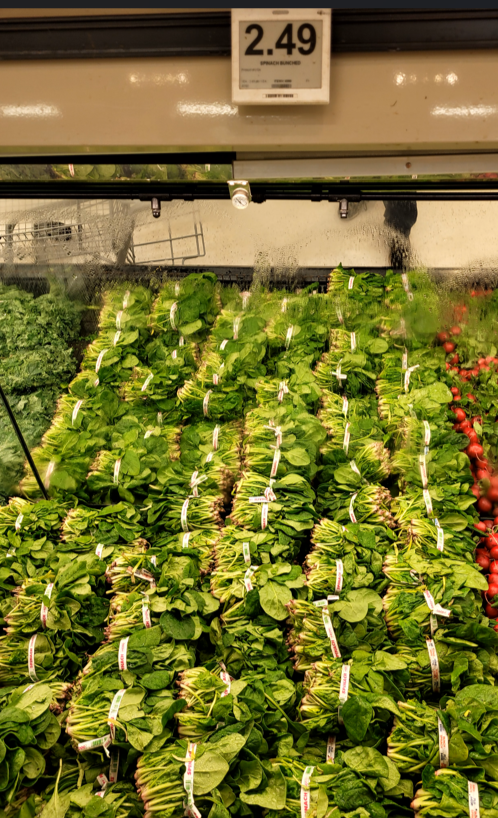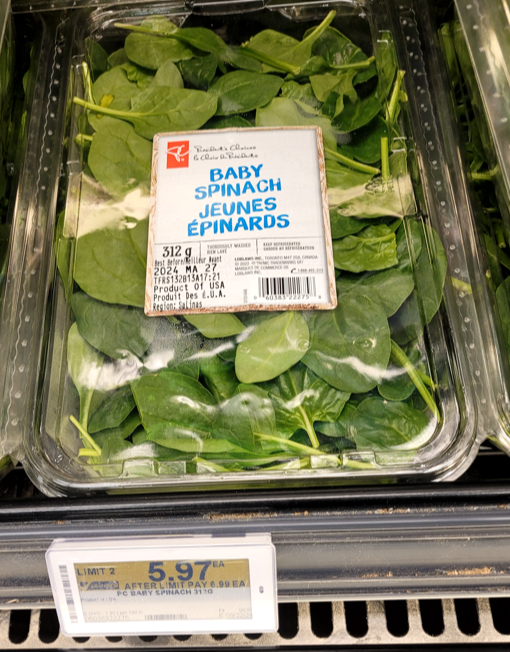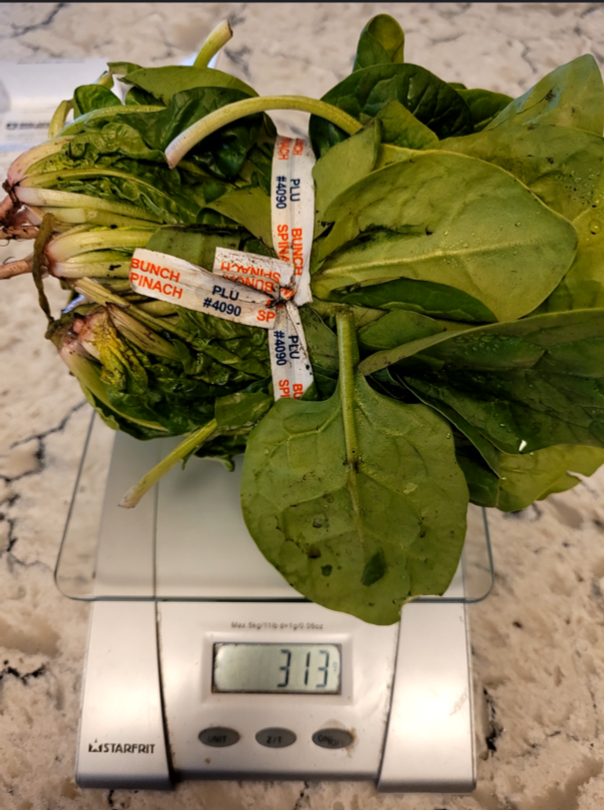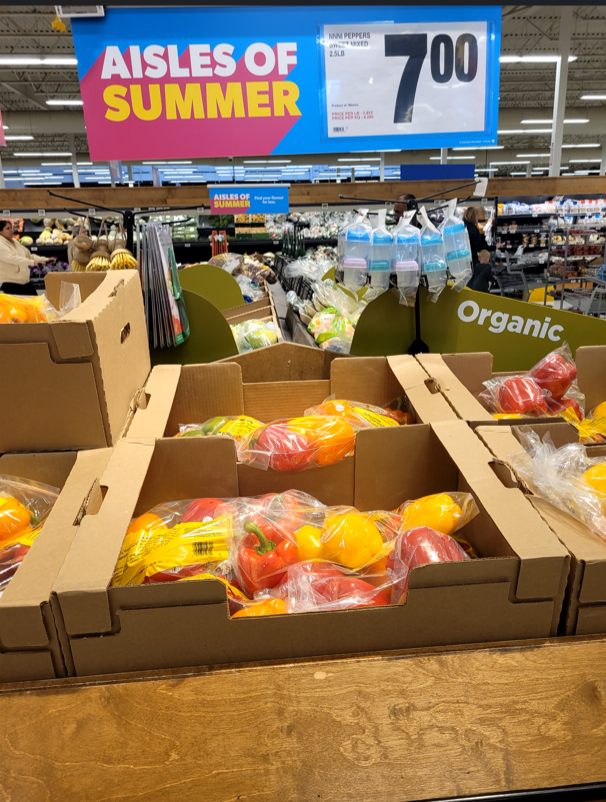A look at Vitamin A
4 comments
Let's start looking at Vitamins
Let's start with Vitamin A
While I've looked at the macronutrients like carbohydrates, protein and oils I haven't looked at vitamins yet. If you read my earlier posts you might say that you could survive with some biscuits on a regular basis made with oil and some beans for protein.
As much as I wish that were true as it would make food very simple and cheap, that just isn't how food works. Without getting variety and all the different vitamins there will be a number of different problems. Without vitamin A people can become blind. Indeed that is the reason behind genetically engineered "Golden Rice" which modifies regular rice to add Vitamin A. On the one hand it allows poor people who rely on rice as their sole foodsource to avoid blindness. On the other hand we are feeding people without a genetically engineered food and not something natural.
Putting that aside I wanted to take a quick look at how expensive it is to get vitamin A.
Rich Sources of Vitamin A
There are many sources of vitamin A. I wanted to avoid animal sources wherever possible for a few reasons. There is the ethics of killing animals for food. There is the environmental degradation caused by intensive animal farming. There is also the fact that animal sources tend to be more expensive than vegetable sources. So I won't be looking at liver in this post.
In addition some sources may be an excellent source of Vitamin A such as Palm oil. However as I can't get that in Canada I'll have to pass on adding it. Although if anyone from Nigeria wants to get me a price on Red Palm Oil I'd be happy to do some math (@monica-ene, feel like dropping me a price 😁)
With that in mind I considered three major sources :
- Gourds such as pumpkin and squash
- Spinach
- Carrots
I don't really enjoy squash. I also don't enjoy spinach but at least it is easy to hide. Of course that leaves carrots which I actually do enjoy.
Guess which one I'll be looking at most closely.
Spinach and Carrots
A vitamin by another name
Now Vitamin A is chemically known as retinol. Carrots and Spinach actually have very little Vitamin A in them. Why am I adding them as good sources then? They get added because they have beta-carotene in them. While beta-carotene is NOT Vitamin A, a person's body can convert it to Vitamin A as it needs. By getting beta-carotene your not getting vitamin A but you are giving your body something it can use to get what it needs. Which in my eyes is close enough.
I wasn't actually expecting to learn anything new when I did the research for this article. As a Pharmacist I'm pretty well versed on vitamins. However, I did learn a few things and strengthened my knowledge on others. What little tidbits did I learn?
I already knew that people need roughly 900IU of Vitamin A daily. I also knew that multivitamins often have 10,000IU of beta carotene. I just figured they added a lot of extra beta carotene in multi vitamins for an unknown reason. I didn't realize that it was a 12:1 conversion ratio. 10,000 units of beta carotene can be converted into roughly 900 IU of vitamin A.
But there were a few other tidbits of information I learned. First: Beta Carotene got its name because it was originally derived from carrots. Second: There are other carotene's found in nature such as alpha carotene which can also be converted into Vitamin A but at a 24:1 ratio. Kind of interesting learning a few new facts while researching an article.
What are the numbers with Vitamin A
As mentioned : Vitamin A daily requirement 900IU
or about 10,800IU if sourced as Beta Carotene.
How much beta carotene is in Carrots and Spinach?
Carrots : 8285 in 100g
Spinach : 9377 in 100g
Spinach
at 9377 in 100G it only takes about 115g of spinach to make the entire daily requirement of spinach. However spinach was either sold by the bunch or by weight. Which is the better deal and how much will it cost for my daily needs?

My guess is that the regular spinach will be cheaper as I bet the packaging and processing adds to its cost.

- 2.49 for a bunch of spinach
- 5.99 for 312g of spinach.
It is certainly cheaper to buy a bunch of spinach for $2.49 but how much actual spinach is there?

That was something unexpected. The container of prewashed and stem cut off spinach had the same weight as the bunch. It was just over double the price. Now I'll lose some weight when I wash and cut off the ends of the spinach but I'm certainly not losing over half! Winner: Bunch Spinach
But how much does it cost for a days supply?
Spinach cost per gram? $2.49/313g = $0.008/g
Amount required daily : 115g
Cost : 0.008*115 = $.91
I can almost guarantee carrots are going to be cheaper than that but again, let's look at the actual numbers!
Carrots
Now with loose carrots I can say with absolute certainty that the cost was much cheaper to buy a "bulk bag" of carrots versus loose individual carrots.

At $6.99 for a 5lb bag at regular price I'd almost certainly wait for a sale as carrots regularly go on sale and they do keep quite well. However, then I wouldn't be able to make a post today.
Now at 8285IU / 100g they aren't quite as loaded with beta carotene as spinach. I was quite surprised at that. Doing a little math 10800iu per day / 8285iu per 100g --> 130g daily requirement.
And on the cost $6.99/5lb = $6.99/2270g = $0.31/100g
At $0.31/100g it is much cheaper than spinach. To get the 130g daily requirement it would cost : $0.31*1.3 = $0.40
The Winner
With spinach being $0.91/day and carrots being less than half that at $0.40/day it is clear that carrots are the clear winner. When I look at other vitamins I'm sure the race will be a little closer as spinach has many vitamins which are also valuable that carrots just don't.
However, for today I'm going to pen the value of vitamin A at $0.40 to get a day's supply.
Now I only have to look at Vitamin B1, B2, B3, B5, B6, B7, B9, B12, C, D, E, K and all the minerals before I'm finished and can look further into recipe's.
Okay...so I still have a long way to go. At least I'm one step closer on my research into the most cost effective diet.
Thanks for dropping by.
Until my next post to learn some more.
And as always, I'd love to hear any comments you might have. Who knows, I might have to even revisit this sometime when carrots go on sale or take a look at gourds and see if they are that much cheaper than carrot. Who knows, perhaps my "cheap gene" will make me eat pumpkin or squash (or perhaps sweet potato) to save a few cents! (hehe...probably not).
Final thought
There are a number of other sources of Vitamin A. Red peppers for example :

However, I'm almost certain they are more expensive and I didn't want to make this an exhaustive post on every alternative.
Carrots are the "namesake" for the vitamin and Spinach was a good contender for best alternative. If you are curious about other sources or would like me to do some math based on your local prices of food by all means send me a message and I'll do a bit of research.
Again, thanks for reading!
Comments